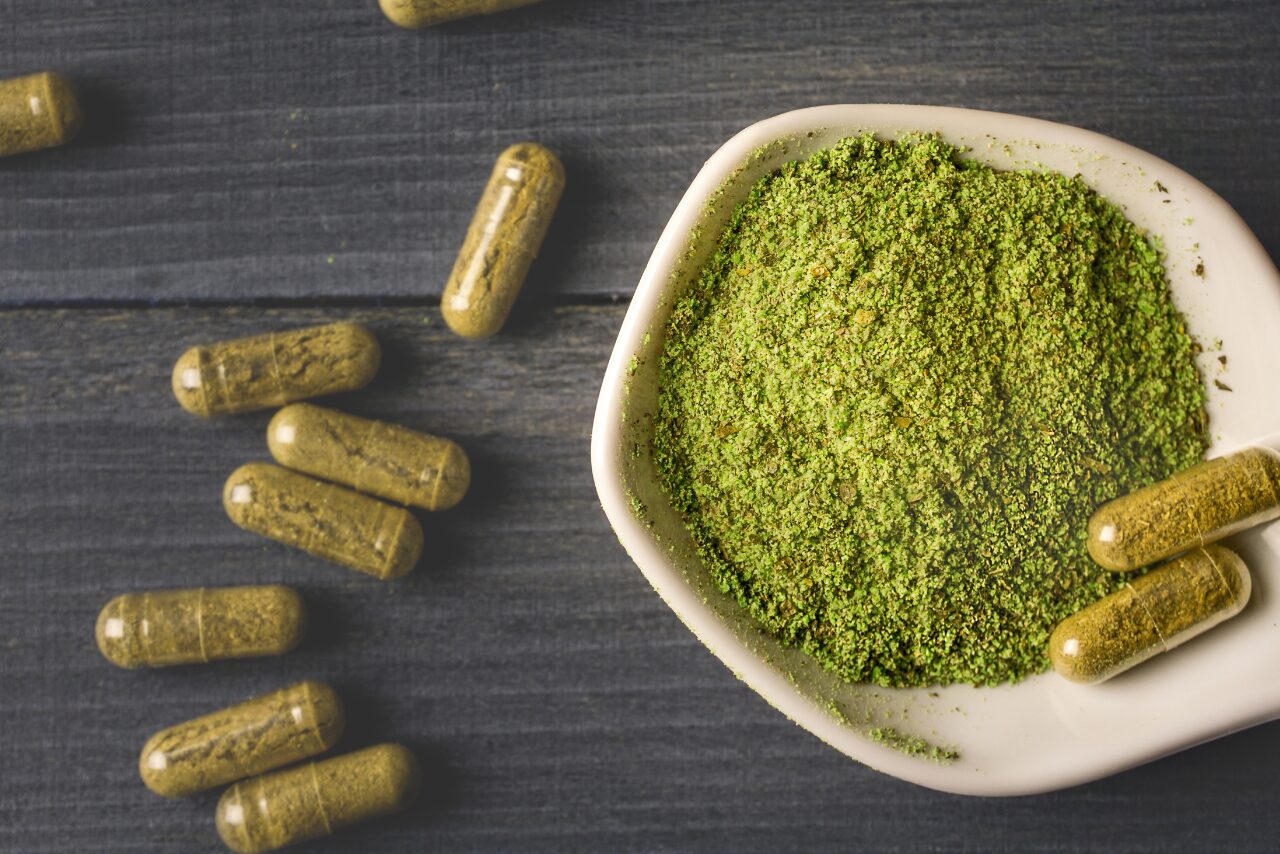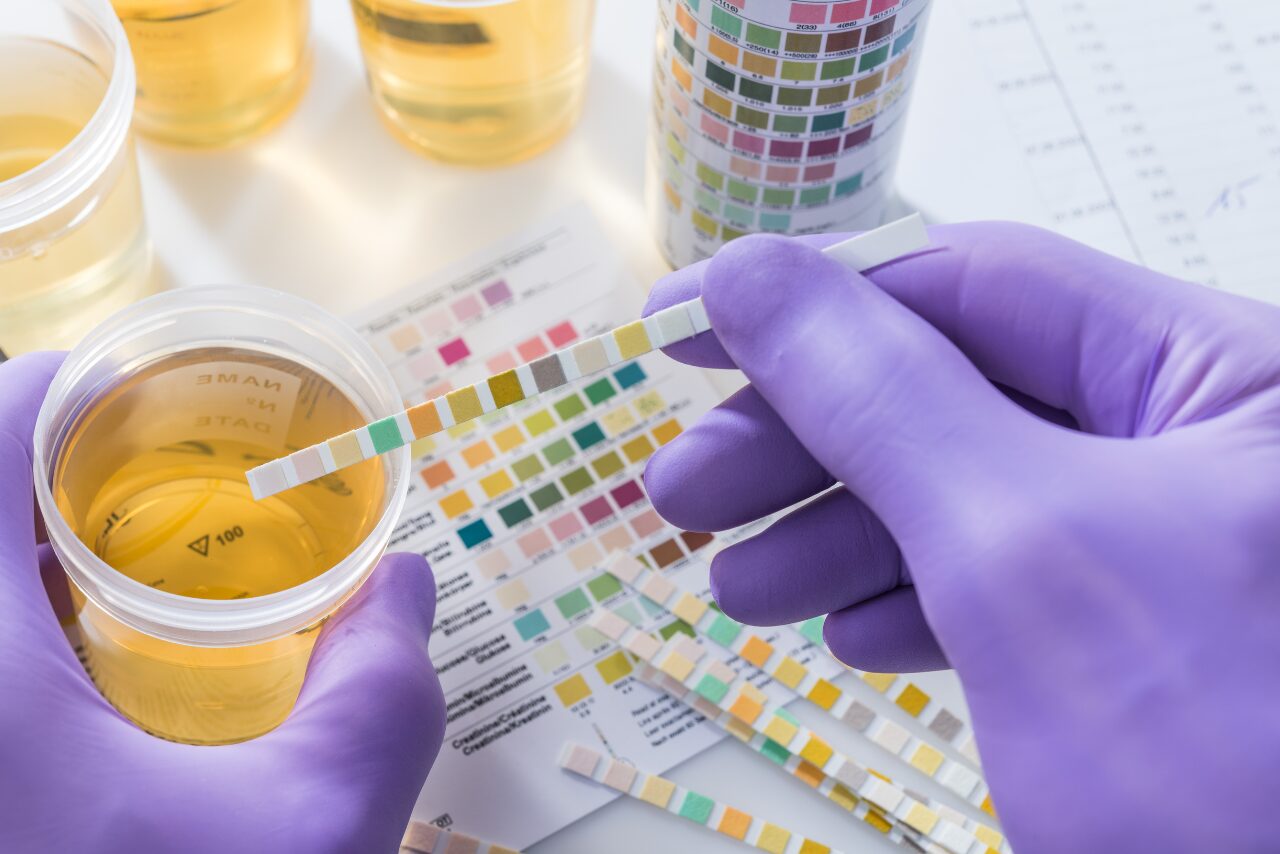
Does Kratom Show Up On A Drug Test?
Kratom, a tropical tree native to Southeast Asia, has gained popularity in the U.S. for its stimulant and opioid-like effects. Traditionally used for pain relief and boosting energy, it has recently been marketed as a natural remedy for opioid withdrawal and chronic pain.
However, questions have arisen regarding its legality and whether kratom shows up on drug tests. This article will explore how kratom interacts with the body, if it can be detected in drug screenings, and the potential risks associated with its use.
If you or a loved one is struggling with addiction, take the first step towards healing! Reach out today by heading to our admissions page or calling us now.
What is Kratom?
Kratom (Mitragyna speciosa) is derived from the leaves of a Southeast Asian tree. Its primary active compounds, mitragynine and 7-hydroxymitragynine, bind to opioid receptors in the brain, producing effects similar to both stimulants and opioids depending on the dosage. Lower doses tend to have stimulating effects, while higher doses can act as sedatives, offering pain relief or relaxation. This dual nature is part of what makes kratom appealing, but it also contributes to concerns about its potential for abuse and addiction.
Does Kratom Show Up On A Standard Drug Test?
Most standard drug tests—such as the five-panel or ten-panel tests used by employers—do not typically screen for kratom. These tests usually focus on substances like marijuana, cocaine, opiates, amphetamines, and PCP. Kratom’s chemical compounds, mitragynine, and 7-hydroxymitragynine, are not included in standard drug testing panels, meaning individuals who use kratom may not be detected by routine screenings.
However, specialized kratom tests do exist. Some companies or organizations may request specific testing for kratom, especially if they suspect its use. Advanced drug screenings, such as extended-panel tests or mass spectrometry, can detect kratom when investigators specifically look for its presence.

Factors That Influence Detection
While kratom may not appear on most common drug tests, several factors could influence whether it can be detected in a specialized test:
- Frequency of Use: Frequent kratom use increases the likelihood that it will remain in your system longer, making it easier to detect in specialized tests.
- Dosage: Higher doses result in a higher concentration of active compounds, which can take longer to metabolize.
- Body Metabolism: Individual factors such as metabolism, weight, and overall health can affect how long kratom stays in the system. Those with slower metabolisms may retain kratom for longer periods.
- Type of Test: Urine, blood, saliva, and hair tests all have different detection windows. Kratom is detectable in urine for up to 7 days, but blood and saliva tests may only detect it for a few days.
How Long Does Kratom Stay In Your System?
Kratom’s half-life varies depending on the dosage, but it typically takes about a day for the body to process half of the mitragynine present. On average, kratom is detectable in urine for up to 7 days after the last use, though this timeframe can be shorter or longer depending on the individual’s metabolism and the amount consumed. Blood tests, which tend to be more sensitive, may only detect kratom for 24-48 hours. Hair tests, however, can potentially detect substances for much longer periods, sometimes up to 90 days, though kratom testing via hair is rare.
Can Kratom Lead to a False Positive?
Yes Kratom can cause a false positive. While rare, there have been reports of kratom use resulting in false positives for methadone or other opioids due to the similarity in how mitragynine and 7-hydroxymitragynine interact with opioid receptors. False positives occur when a substance causes a drug test to indicate the presence of another drug. If a person using kratom is concerned about a false positive on a drug test, they should disclose their kratom use to the testing facility to avoid misinterpretation.
Risks of Using Kratom
Although advocates promote kratom as a natural remedy, it poses several health risks, especially with regular or high-dose use. Some of the risks associated with kratom include:
- Addiction and Dependence: Kratom has addictive properties, especially for those using it at high doses or for extended periods. Users can develop tolerance and experience withdrawal symptoms similar to those of opioids.
- Side Effects: Common side effects of kratom use include nausea, dry mouth, constipation, and increased urination. More severe reactions, such as hallucinations, seizures, and liver damage, have also been reported.
- Drug Interactions: Kratom can interact dangerously with other substances, particularly opioids, alcohol, and sedatives. These interactions can increase the risk of overdose and other serious side effects.
- Legal Concerns: Kratom’s legality varies by state. While it remains legal in many places, several states and municipalities have banned its sale or use. Users should be aware of the local laws surrounding kratom.
Should You Be Concerned About Kratom Use?
While kratom may not appear on most standard drug tests, the question “Does kratom show up on a drug test?” is important to consider, as its potential for abuse and health risks should not be ignored. Those using kratom for pain relief or to manage opioid withdrawal should consult a healthcare provider to explore safer and more regulated alternatives. Regular or heavy kratom users should also be mindful of the potential for dependence and withdrawal, which can be difficult to manage without professional help.

Reclaim Your Life from Kratom Addiction
If you or a loved one is struggling with kratom dependence or addiction, Lake Ave Recovery in Massachusetts is here to help. Our team of compassionate professionals provides comprehensive treatment plans tailored to each individual’s unique needs. Whether you’re dealing with kratom addiction or other substance use disorders, we offer a range of services, including detox, counseling, and long-term support, to help you on the path to recovery.
For more information on how we can assist you, Call or visit our admissions page at Lake Ave Recovery today. Let us support you in overcoming addiction and reclaiming your health and well-being.
